In pictures: Berbera builds future from crumbling past
- Published
Berbera in the Somali territory of Somaliland used to be a thriving fishing town. Now it is literally crumbling to the ground, says James Jeffrey.
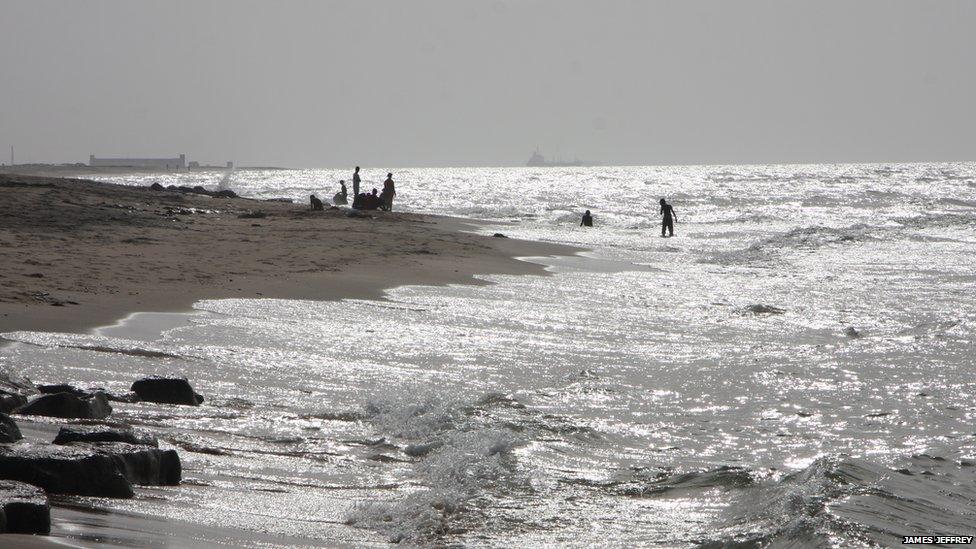
Lying on the Gulf of Aden opposite Yemen, Berbera was once a centre of maritime trade between the Horn of Africa interior and the Middle East.
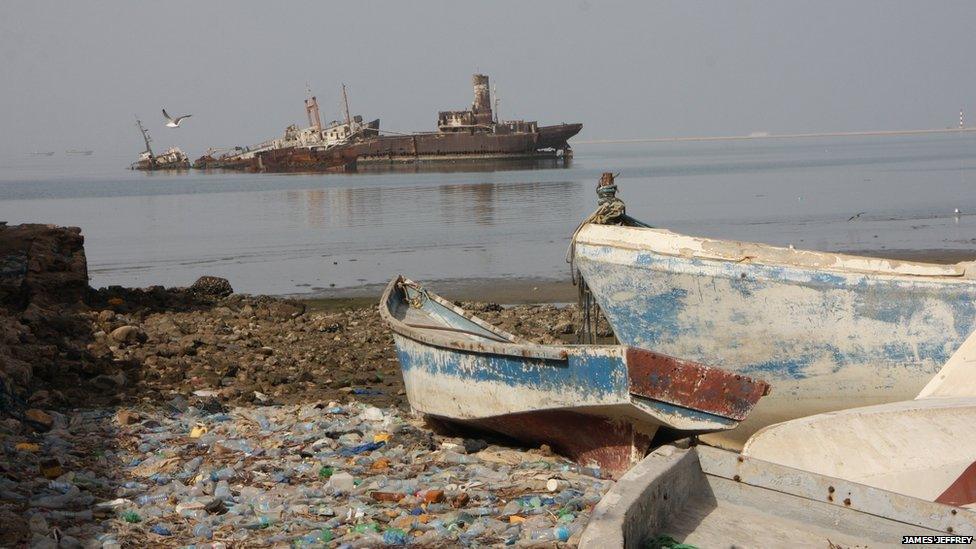
A larger port in neighbouring Djibouti now dominates regional commerce, leaving Berbera's role far diminished.
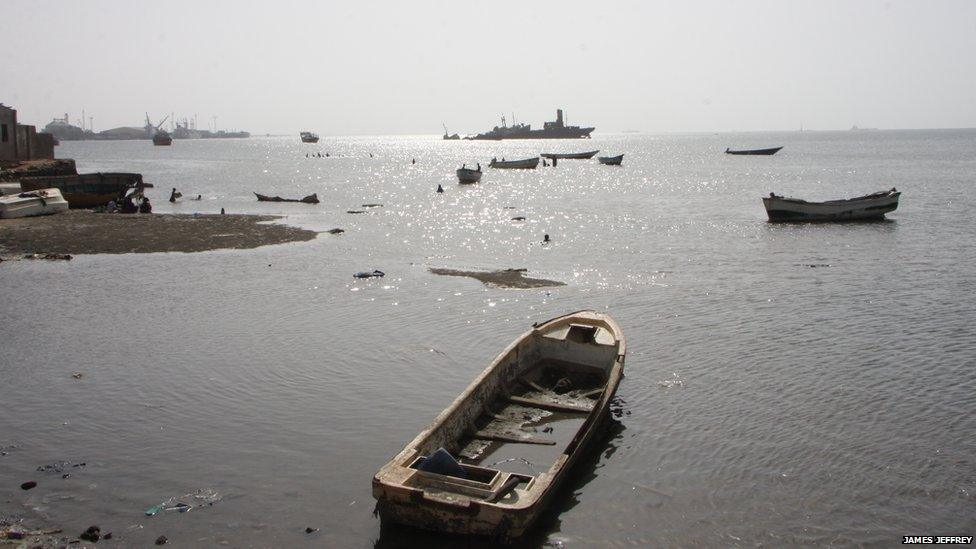
In the heart of the old town, its small fishing harbour is strewn with broken boats while half-sunken ships testify to diminished fortunes.
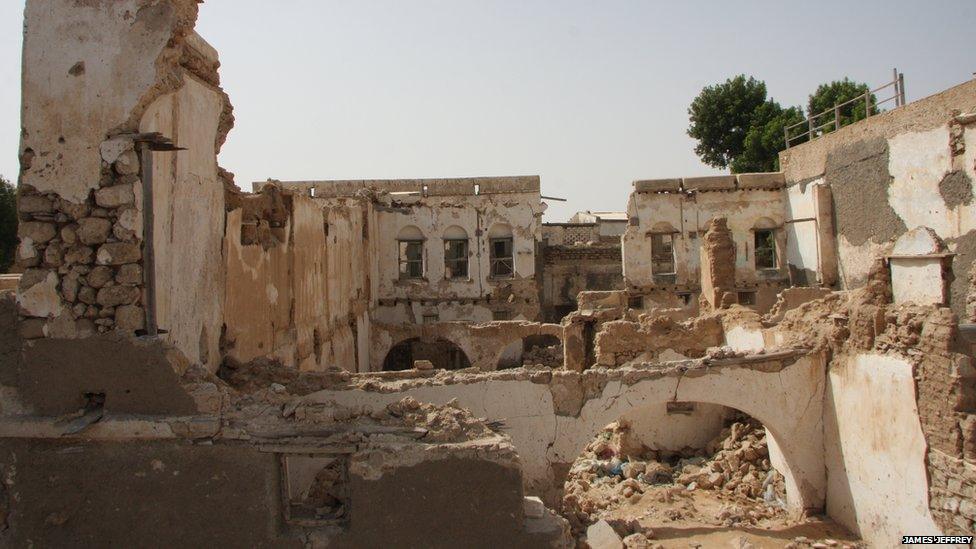
Berbera's fragile architectural beauties, ranging from Ottoman mansions to neighbourhoods where Arab, Indian and Jewish trading communities once lived, are gradually disintegrating.
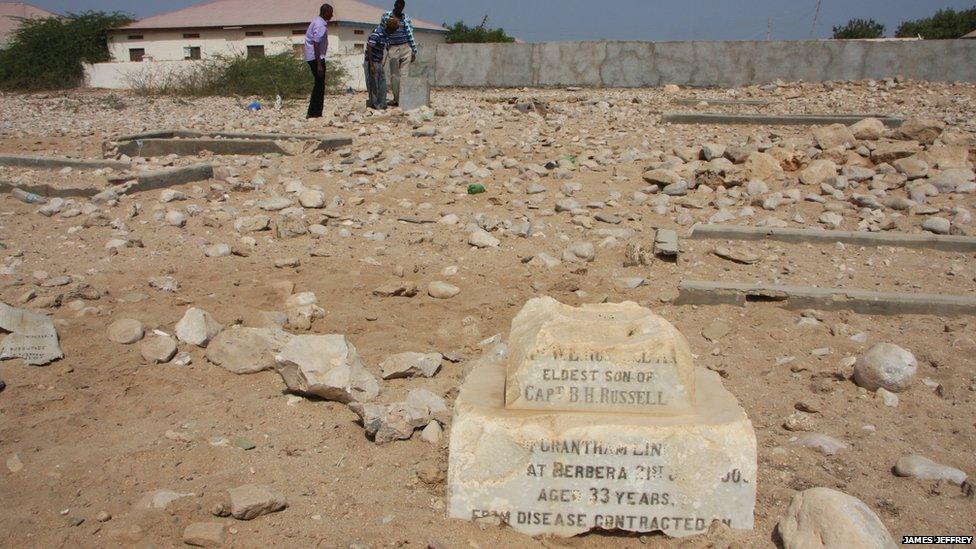
Somaliland was a British Protectorate until independence in 1960, although few colonial reminders remain in Berbera. Its British cemetery is all but destroyed.
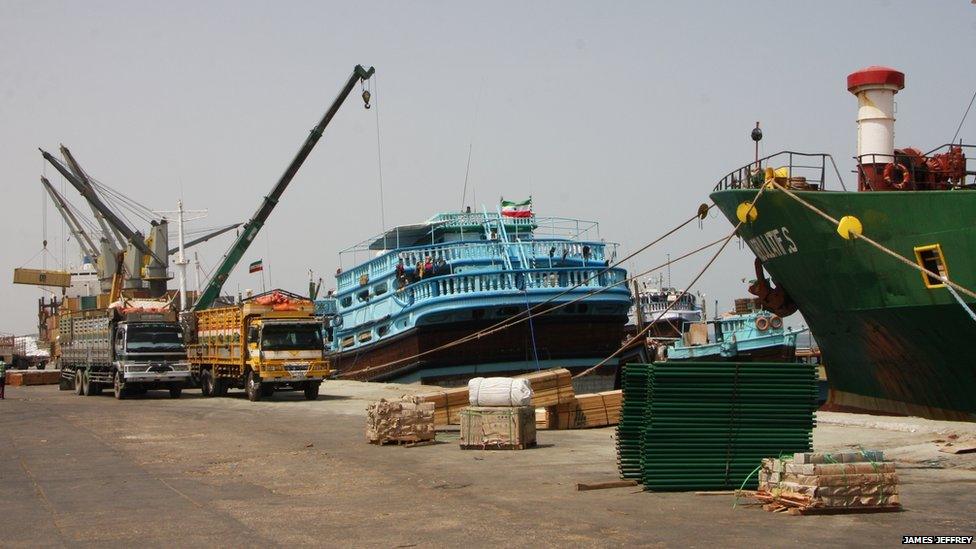
Somaliland's economy depends on livestock exports from Berbera's small modern port. Goats and camels are sent to Saudi Arabia while 70% of imports are sold to its neighbour Ethiopia.
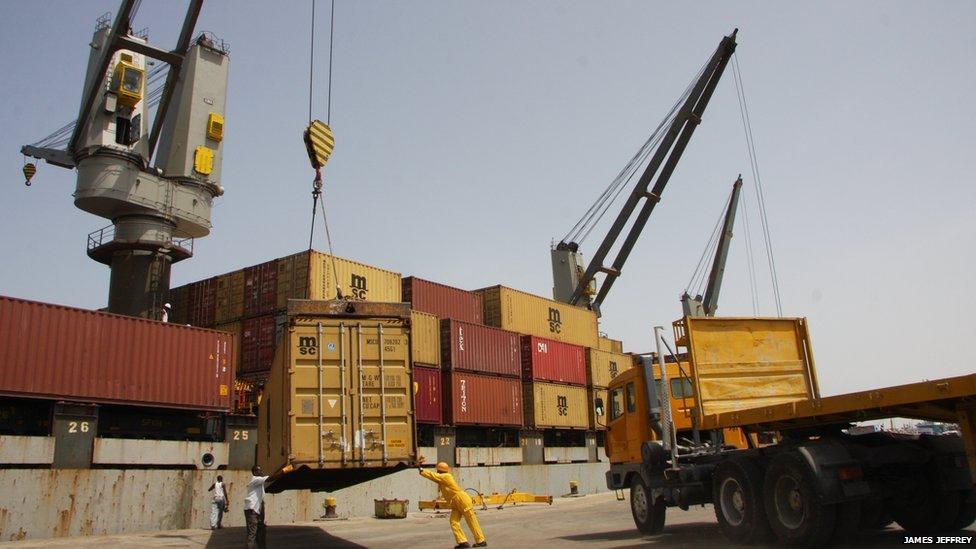
"Somaliland used to be a strategic trade hub," says Weli Daud from the Somaliland Ministry of Finance. "Now the government is looking for foreign investment in the port."
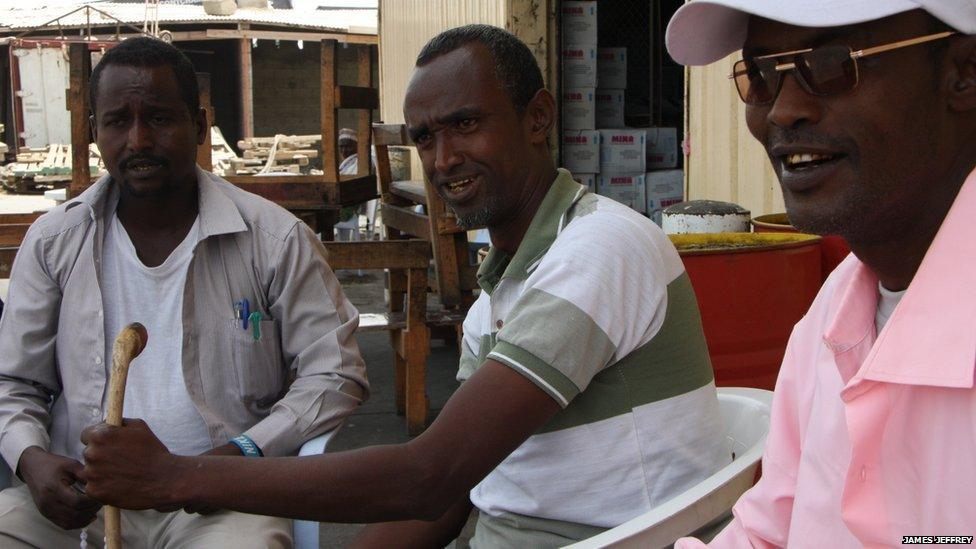
Out-of-work members of the Somaliland Seaman's Union gather at Berbera's docks to try and get hired. They complain they are not getting paid equal wages. They earn about $250 (£160) a month - far less than foreign workers - because they don't belong to an internationally recognised organisation.
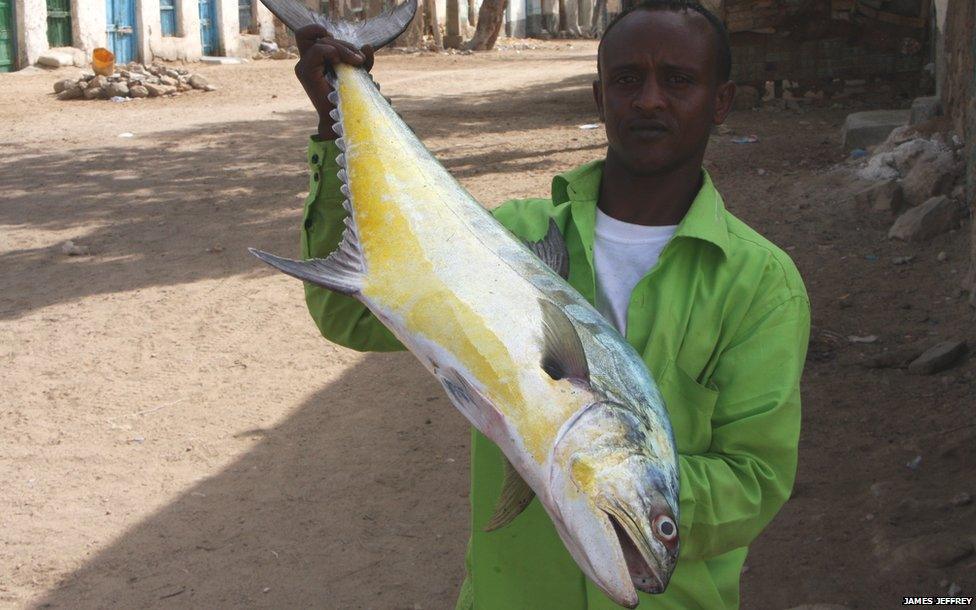
Somaliland's 850km coastline offers enormous potential for a thriving fishing industry. Presently, however, only a few fisherman gain from the surrounding sea's abundant riches.
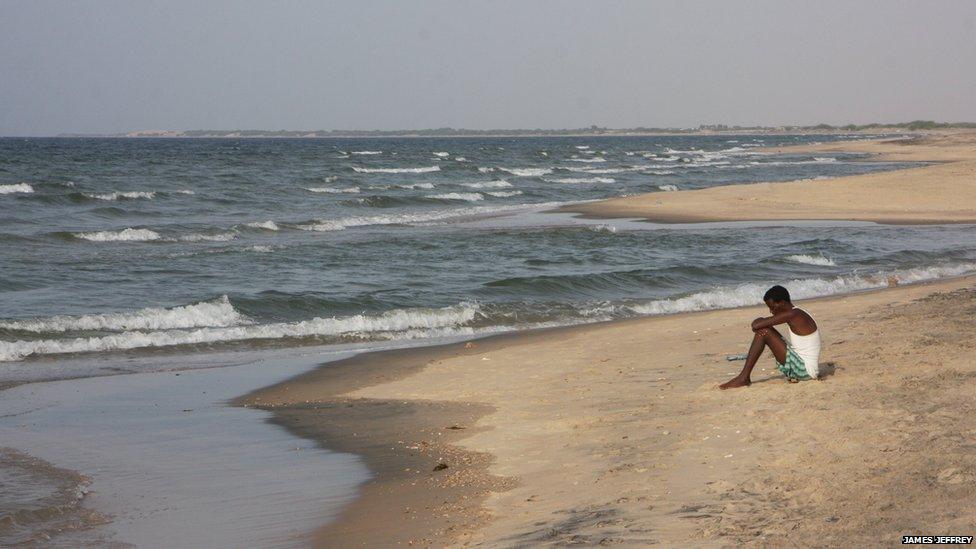
Some propose using the undiscovered beaches to attract tourists. But Georgina Jamieson with UK-based tourism consultancy service Dunira Strategy says there is not enough infrastructure. "Though that is part of the beauty; it is very untouched. Some say it is like what Egypt looked like prior to its tourist boom."
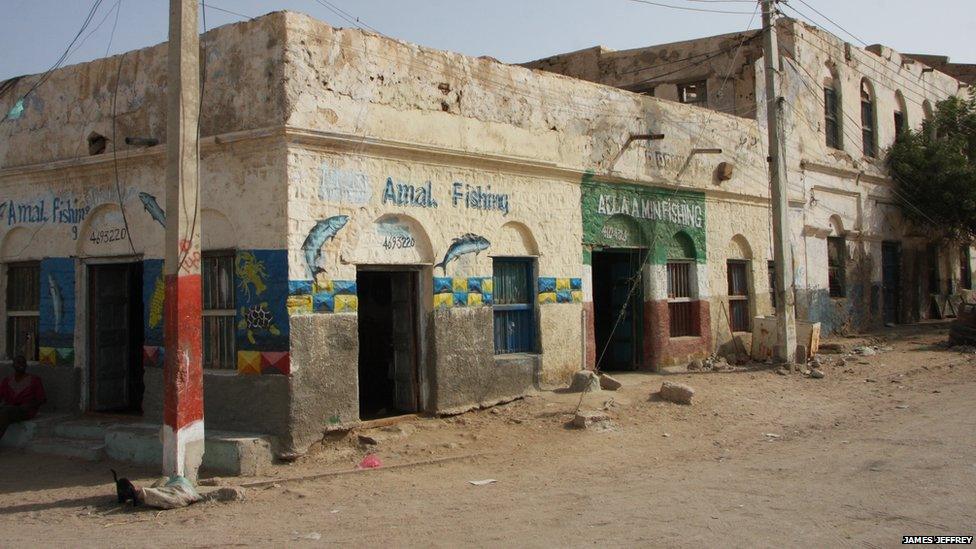
Little activity, if any, stirs Berbera's fish shops. Many young workers head to the perceived bright lights of the capital, Hargeisa, for work, as 75% of Somaliland's workforce are jobless.
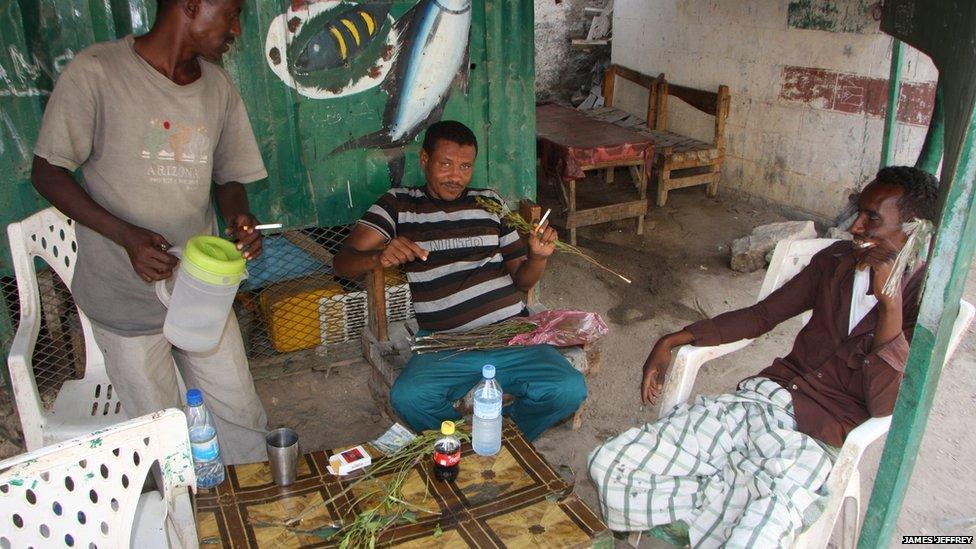
One way to while away the hours is to chew the mild stimulant khat, something an estimated 90% Somaliland men do.
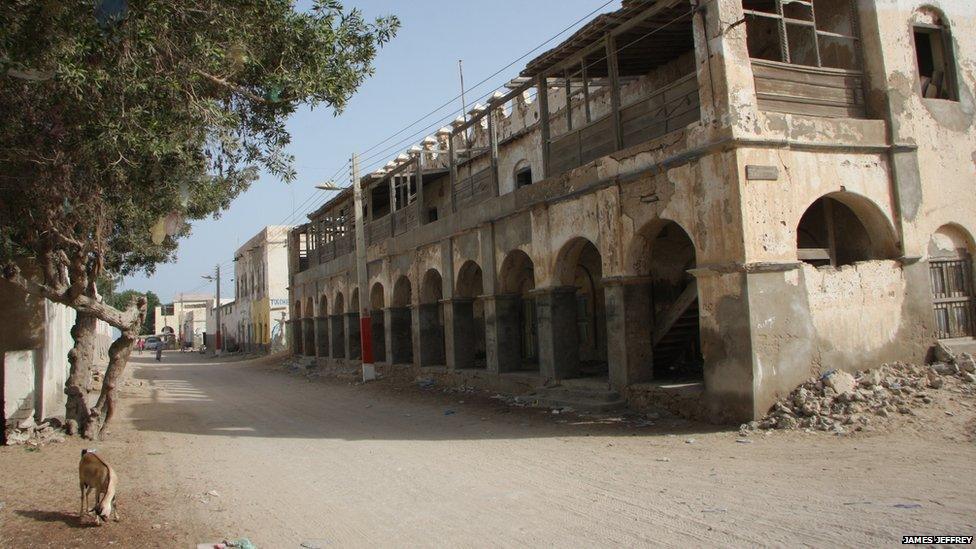
There are no plans for restoration, as far as Hargeisa Culture Centre director Jama Musse knows "and unfortunately we have to act very soon if we are to save it from disappearing," he says.
- Published26 August 2013
- Published28 February 2014
- Published24 January 2012
